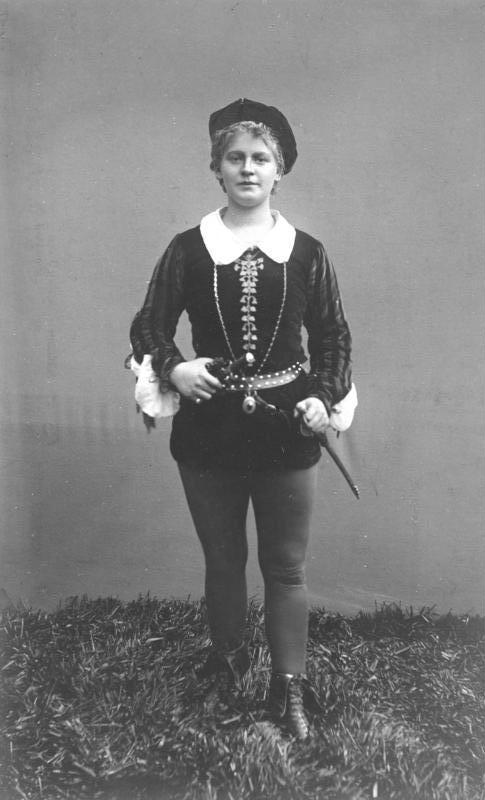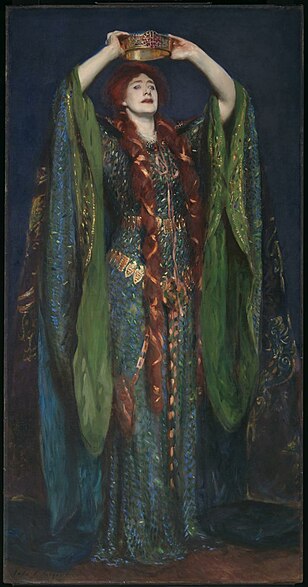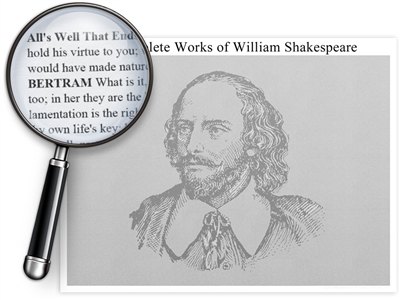Twelfth Night opens with a shipwreck, but if you blink you’ll miss it. There’s no actual stage direction that says “And now a shipwreck happens,” unlike The Tempest which starts in exactly this way.
Instead, the first cue about what’s happened comes as Viola, the Captain and sailors enter (Act 1 Scene 2) and Viola asks, “What country is this?” and fears that her brother has drowned:
[Enter VIOLA, a Captain, and Sailors]
Viola. What country, friends, is this?
Captain. This is Illyria, lady.
Viola. And what should I do in Illyria?
My brother he is in Elysium.
Perchance he is not drown’d: what think you, sailors?
The Captain goes on to describe what he saw during the wreck, and gives Viola hope that her brother might indeed have survived (spoiler alert – he did!) But, still, that leaves Viola alone in a country unknown to her. The Captain tells her the story of the Lady Olivia and Duke Orsino. Viola wonders if she might become a servant for Olivia, but she is not seeing any visitors. So instead Viola decides that go into the service of Orsino, with the help of the Captain:
Conceal me what I am, and be my aid
For such disguise as haply shall become
The form of my intent. I’ll serve this duke:
Thou shall present me as an eunuch to him:
It may be worth thy pains; for I can sing
And speak to him in many sorts of music
That will allow me very worth his service.
She never says “help me dress like a boy”, of course, but it can be inferred from the clues (“conceal me what I am”, “present me as an eunuch to him”).

But why is this her plan? Surely there must be easier ways to survive in Illyria. There are a few theories:
- It’s a matter of safety. She’s an unaccompanied woman in an unknown country (even though she is with the Captain, he’s still just a hired hand, not exactly a family member). She’ll meet with less trouble if people think she’s a man. This is the logic that one of Shakespeare’s other cross-dressing heroines, Rosalind, uses in As You Like It:
Rosalind. Alas, what danger will it be to us,
Maids as we are, to travel forth so far!
Beauty provoketh thieves sooner than gold.Celia. I’ll put myself in poor and mean attire,
And with a kind of umber smirch my face;
The like do you; so shall we pass along,
And never stir assailants.Rosalind. Were it not better,
Because that I am more than common tall,
That I did suit me all points like a man?
A gallant curtle-axe upon my thigh,
A boar spear in my hand; and- in my heart
Lie there what hidden woman’s fear there will-
We’ll have a swashing and a martial outside,
As many other mannish cowards have
That do outface it with their semblances.
- She needs money. Viola’s first thought is to go into the service of Olivia until she can get her own situation together:
Viola. O that I served that lady
And might not be delivered to the world,
Till I had made mine own occasion mellow,
What my estate is!
- The Captain’s description of the story between Orsino and Olivia has captivated Viola’s attention, and she wants to insert herself into the story. She believes that she will be of value to the Duke because she “can sing, and speak to him in many different sorts of music” and also “what else may hap to time,” so it’s quite possible that she’s already thinking about trying to play matchmaker.


